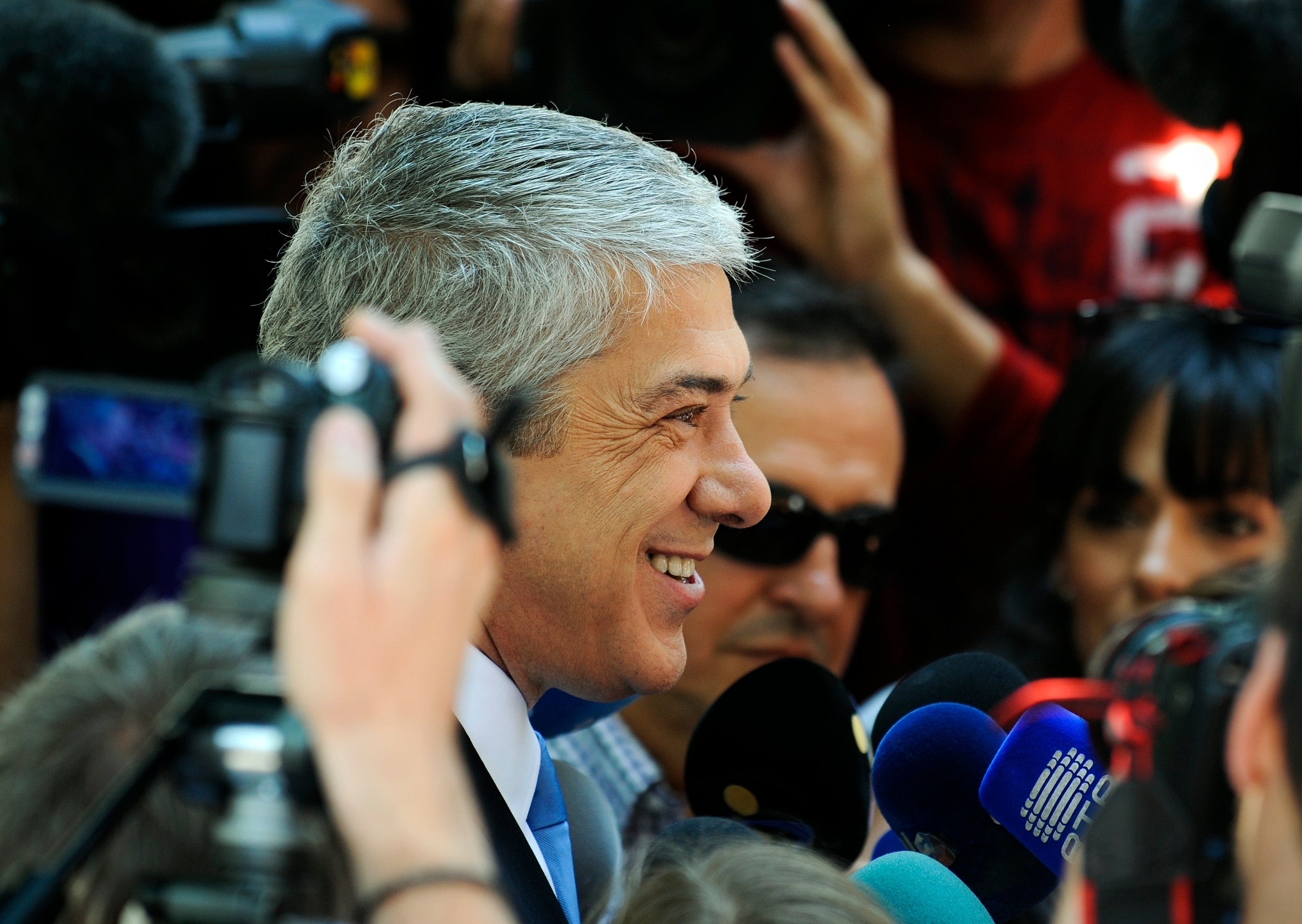Portuguese judge to rule on trial for former prime minister
A Lisbon judge is due to rule whether evidence gathered by public prosecutors is sufficient to put former Portuguese prime minister José Sócrates on trial for alleged corruption, money laundering and tax fraud

Your support helps us to tell the story
From reproductive rights to climate change to Big Tech, The Independent is on the ground when the story is developing. Whether it's investigating the financials of Elon Musk's pro-Trump PAC or producing our latest documentary, 'The A Word', which shines a light on the American women fighting for reproductive rights, we know how important it is to parse out the facts from the messaging.
At such a critical moment in US history, we need reporters on the ground. Your donation allows us to keep sending journalists to speak to both sides of the story.
The Independent is trusted by Americans across the entire political spectrum. And unlike many other quality news outlets, we choose not to lock Americans out of our reporting and analysis with paywalls. We believe quality journalism should be available to everyone, paid for by those who can afford it.
Your support makes all the difference.A Lisbon judge is due to rule Friday whether evidence gathered by public prosecutors is sufficient to put former Portuguese prime minister José Sócrates on trial for alleged corruption, money laundering and tax fraud.
Prosecutors allege that Sócrates pocketed around 34 million euros ($40 million) during and after his six years in office between 2005 and 2011.
Sócrates, who was a center-left Socialist prime minister, has denied any wrongdoing. He has described the allegations as “absurd” and says some of the money he is alleged to have received were loans from a close friend.
It was not clear whether Sócrates would attend the afternoon court session to hear the judge’s decision.
Both prosecutors and Sócrates will be able to file an appeal against the ruling.
Sócrates, 63, is suspected of being at the center of a web of shady corporate interests that paid for his influence to win contracts and gain business advantages in the construction, banking and telecommunications sectors. The charges reportedly run to some 5,000 pages.
The case has gripped Portugal since Sócrates’ arrest at Lisbon airport in 2014, and judge Ivo Rosa took the rare step of allowing Friday’s court proceedings to be broadcast live.
Prosecutors allege that complex international bank transfers and the purchase of property, art and other assets in the names of family and friends aimed to conceal the corruption.
Large amounts of cash were also delivered to Sócrates in envelopes and briefcases when he lived in an upscale Paris apartment after leaving office, they claim.
The case involves 28 defendants — including 19 people and nine companies — represented by 39 lawyers.
Among the defendants are the former head of Portugal’s biggest private bank, which went bust in 2014 in a separate scandal, and two former heads of Portugal Telecom.
The case has required the translation of tens of thousands of pages of documents from French and English. That contributed to delaying the case, but the Portuguese legal system is notoriously slow and the subject of frequent criticism. Prosecutors complain about a lack of resources.
In office, Sócrates won renown as a modernizer. His governments introduced laws allowing gay marriage and abortion and championed the country’s green energy sector.
Internationally, he helped steer to completion the Lisbon Treaty, known as the European Union’s rule book, which was signed in the Portuguese capital under the country’s six-month presidency of the bloc in 2007.
Sócrates was also in power when Portugal needed a 78-billion-euro ($92 billion) international bailout in 2011, amid Europe’s debt crisis.
Later police investigations cast a cloud over his reputation. He was jailed following his arrest and held in prison for nine months before being placed under house arrest and then freed on bail.
Other members of Sócrates’ government have been, or still are being, investigated for alleged corruption, including former economy minister Manuel Pinho.
Sócrates’ former interior minister, Armando Vara, is serving a five-year prison sentence for influence-peddling.